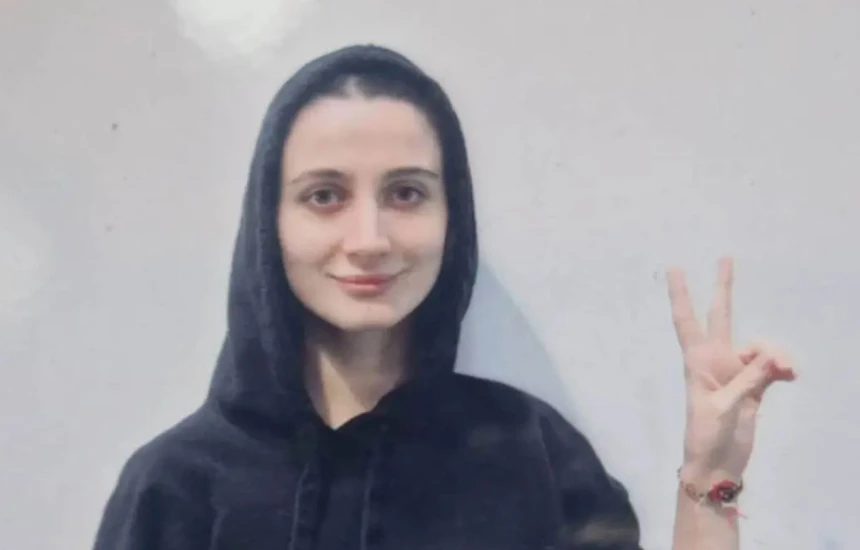The family of Teuta Hoxha, an Albanian activist held in Peterborough Prison, UK, has raised alarm over her deteriorating health after three weeks on hunger strike.
Hoxha is among those detained for alleged involvement with Palestine Action, a UK-based pro-Palestinian network known for direct action campaigns against the Gaza war. Authorities accuse the group of carrying out property damage, including an August 2024 break-in at Elbit Systems, an Israeli arms manufacturer in Filton, causing damages estimated at over £1 million.
Hoxha, who was among 24 people arrested at the time, denies charges of damage and burglary. While prosecutors have linked the case to “terrorist-related” offenses, she is not charged with terrorism.
A letter signed by 75 healthcare professionals has warned the UK’s National Health Service (NHS) and prison authorities about the risks to Hoxha’s health if urgent medical intervention is not provided. She reportedly received her first medical treatment last Friday, after 18 days without food, and now weighs only 50 kilograms.
Her 17-year-old sister, Rahma, told The Observer that prison conditions worsened after authorities designated Palestine Action a terrorist organization. Since then, more than 700 activists have been arrested. Rahma said her sister has been labeled a “terrorist” by prison staff, even though she is awaiting trial scheduled for April 2026.
“Prison is a pit of despair. She’s been called a terrorist as if she belongs to a terrorist group,” Rahma said.
Hoxha herself has described feeling stripped of her basic freedoms:
“When the state takes your home, your work, almost two years of your life in detention — it’s natural to want to preserve even the smallest shred of independence.”
She went on hunger strike after being denied access to recreational activities and library work, as well as incoming letters.
Her friend, 78-year-old retired teacher Khadijah Knight, said Hoxha has grown extremely weak:
“I think she now realizes they truly don’t care whether she lives or dies, so she won’t give up until her demands are met.”
An NHS spokesperson said prison healthcare services are obligated to provide treatment, including enhanced clinical monitoring for inmates refusing food and fluids, to ensure safe and appropriate care.







